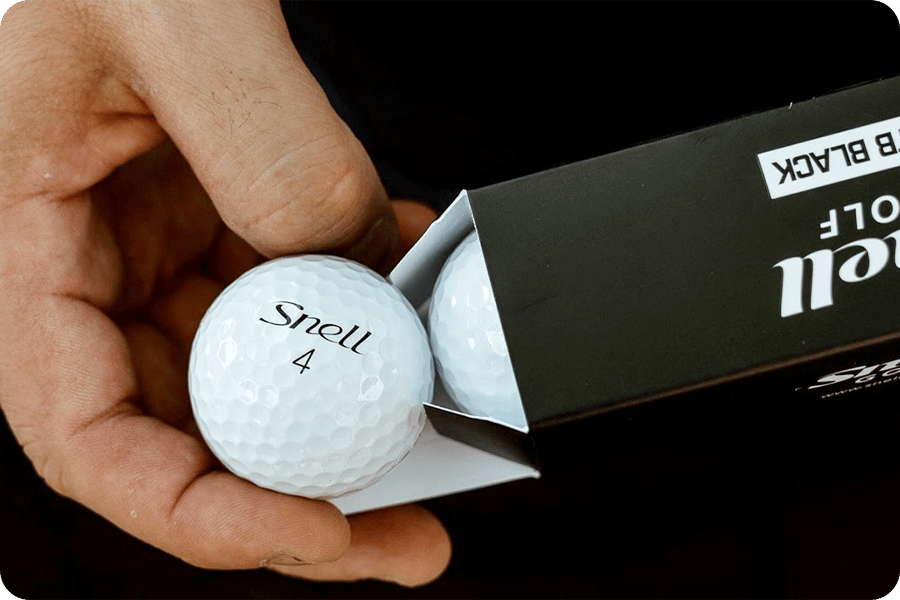- Bottom of the Ninth
- Posts
- ⛳️ The Man Behind the Titleist Pro V1 Is Disrupting Golf Again
⛳️ The Man Behind the Titleist Pro V1 Is Disrupting Golf Again
Dean Snell made the Pro V1. Now he’s building something better.

Happy Wednesday,
Golf balls are a $2 billion business, with most of that money going to just a few legacy brands.
But what if the best ball on the market wasn’t made by Titleist, TaylorMade, or Callaway?
What if it was made by the guy who invented the Pro V1… but now ships boxes out of a 17,000-square-foot warehouse with his family?
That’s the story of Dean Snell.
After three decades in R&D (first at Titleist, then at TaylorMade), Dean left the tour contracts and marketing budgets behind to build Snell Golf, a direct-to-consumer brand focused on one thing: tour-quality performance without the retail markup.
This week, Jake and I sat down with Dean to talk about the evolution of ball technology, how the Pro V1 changed the sport, and why his customer-led model might be the most disruptive play in the game.
100 Genius Side Hustle Ideas
Don't wait. Sign up for The Hustle to unlock our side hustle database. Unlike generic "start a blog" advice, we've curated 100 actual business ideas with real earning potential, startup costs, and time requirements. Join 1.5M professionals getting smarter about business daily and launch your next money-making venture.
5 Takeaways From Our Conversation With Dean Snell

Dean Snell, Founder of Snell Golf
1. He didn’t just work on the Pro V1; he invented it.
Before golf, Dean was working on fighter jets (literally). As an aerospace engineer, he helped convert metal parts into composite components for the F-16.
When he applied that same precision to golf balls at Titleist, it led to the development of cast urethane, a game-changing material still used today.
“It started with one ball in a C-clamp and a freezer,” Dean told us. “Now there are 15 automated lines making them.”
2. The Pro V1 wasn’t just a better ball; it rewrote the performance playbook.
Tour balls used to be soft, spinny, and fragile, thanks to balata covers and wound threads.
Dean’s design:
Reduced driver spin for more distance
Added iron spin for control
Introduced multi-layer construction to fine-tune performance across every club.
That formula became the blueprint for modern golf balls.
3. Snell Golf doesn’t pay pros, and that’s the point.
Dean has had top players offer to play his ball for free. But he’s not interested.
“I’ve made golf balls for 30 years for people who don’t pay for them,” he said. “Now I want to make them for the people who do.”
Instead of chasing validation from tour contracts, Snell is focused on building loyalty from everyday players, one handwritten thank-you note at a time.
4. Most golfers are overpaying for performance they don’t need.
Tour balls are designed for tour players; guys swinging drivers at 170+ mph. But the average amateur plays with a fraction of that speed and consistency.

“At 20 handicap, you won’t notice the difference,” Dean told us. “You’re chasing a logo, not performance.” That’s why Snell offers test packs, keeps prices low, and builds balls around real customer feedback.
5. He’s growing without big budgets—just better product and word of mouth.
No TV ads. No shelf space. No pro shop deals. Snell’s growth has been almost entirely organic, driven by product reviews, social media, and a cult-like following among golf nerds.
“I started with one pallet of balls,” he said. “Now we’ve got hundreds of thousands of customers and a warehouse that packs every order by hand.”
Why It Matters
Dean Snell’s story isn’t just about golf. It’s about product-led growth in a category dominated by marketing.
For decades, the playbook in golf has been top-down; sign the best players, build the brand, charge a premium. But Snell is doing the opposite:
No athletes on payroll
No big-box distribution
No splashy campaigns
Just a better product, sold directly to the people who actually pay for it.
And in a world where performance is often priced like status, that might be the most disruptive thing of all.
📩 And don’t forget: Bottom of the Ninth is back this Friday with the top three stories in sports and business from the week.


Reply